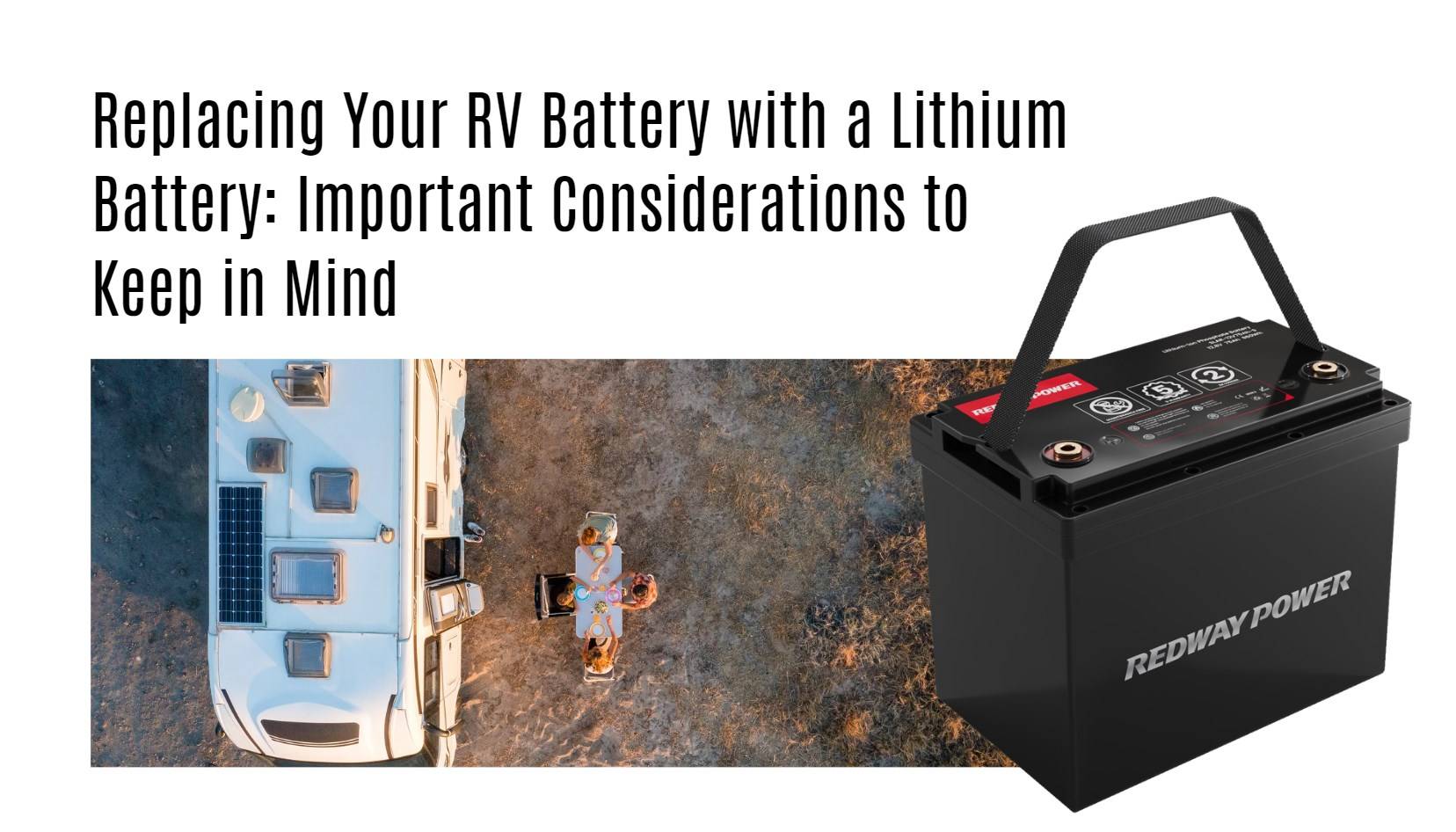Replacing your RV battery with a lithium battery can significantly enhance your vehicle’s performance and efficiency. Lithium batteries offer numerous advantages over traditional lead-acid options, including longer lifespan, faster charging, and lighter weight. However, there are important considerations to keep in mind before making the switch.
What Are the Advantages of Lithium Batteries for RVs?
Lithium batteries provide several benefits that make them an attractive option for RV owners:
- Longer Lifespan: They can last up to 10 years or more, compared to 3-5 years for lead-acid batteries.
- Faster Charging: Lithium batteries charge much quicker, allowing you to get back on the road sooner.
- Higher Depth of Discharge: You can use up to 80-90% of a lithium battery’s capacity without damaging it, unlike lead-acid batteries, which should not be discharged below 50%.
| Advantage | Description |
|---|---|
| Longer Lifespan | Up to 10 years or more |
| Faster Charging | Charges in a fraction of the time |
| Higher Depth of Discharge | Use up to 80-90% of capacity without damage |
How Do You Determine the Right Size Lithium Battery for Your RV?
Choosing the right size lithium battery involves assessing your power needs based on your RV’s electrical consumption. Consider:
- Appliance Power Ratings: Calculate total wattage needed.
- Usage Duration: Determine how long you need power between charges.
- Voltage Requirements: Ensure compatibility with your RV’s system (typically 12V or 24V).
| Calculation Factor | Description |
|---|---|
| Appliance Ratings | Sum total wattage of all appliances |
| Usage Duration | Hours of operation needed |
| Voltage Compatibility | Match battery voltage with RV system |
Why Is a Battery Management System (BMS) Important?
A Battery Management System (BMS) is crucial when using lithium batteries in an RV because it helps:
- Prevent Overcharging: The BMS monitors voltage and prevents charging beyond safe limits.
- Balance Cells: Ensures all cells within the battery are charged evenly, extending overall battery life.
- Provide Safety Alerts: Notifies users of potential issues like overheating or low voltage.
| BMS Functionality | Description |
|---|---|
| Prevent Overcharging | Stops charging when limits are reached |
| Balance Cells | Maintains equal charge across all cells |
| Safety Alerts | Warns users about potential hazards |
How Do Lithium Batteries Compare to Lead-Acid Batteries?
Lithium batteries outperform lead-acid batteries in several key areas:
- Weight: Lithium batteries are significantly lighter, making them easier to handle and install.
- Efficiency: They have higher energy density and lower self-discharge rates.
- Maintenance: Unlike lead-acid batteries, lithium batteries require no maintenance.
| Comparison Aspect | Lead-Acid | Lithium |
|---|---|---|
| Weight | Heavier | Lighter |
| Efficiency | Lower energy density | Higher energy density |
| Maintenance | Requires regular checks | No maintenance required |
Why Is It Essential to Check Compatibility with Your RV’s Electrical System?
Before upgrading to lithium batteries, ensure your RV’s electrical system is compatible with their higher voltage and different charging requirements. This may involve:
- Upgrading Chargers: Ensure that your charger can handle lithium chemistry.
- Checking Inverters: Verify that your inverter is compatible with lithium battery output.
- Wiring Assessment: Ensure wiring can handle the current demands of lithium batteries.
What Are the Best Practices for Maintaining Lithium Batteries?
To maximize the lifespan and performance of lithium batteries in your RV:
- Monitor State of Charge: Regularly check battery levels and avoid deep discharges.
- Store at Optimal Temperatures: Keep batteries within recommended temperature ranges (20°C – 25°C).
- Use a Quality BMS: Always ensure your battery system includes a reliable BMS.
Redway Battery has a great solution for those looking for reliable alternatives when managing lithium-ion battery performance effectively.
Tips for Battery Wholesale Buyers
When sourcing lithium batteries:
- Evaluate specific application needs regarding capacity and size.
- Choose suppliers who provide comprehensive specifications on compatibility.
- Ensure that proper support and warranty options are available from your supplier.
Redway Battery stands out as an excellent choice for battery wholesale buyers or OEM clients seeking reliable partners in lithium battery manufacturing.
Redway Battery Expert Insight
“Switching to lithium batteries can greatly enhance your RV experience by providing more power, less weight, and longer life. Understanding compatibility and proper maintenance is key to maximizing these benefits.”
FAQ Section
- What are the advantages of lithium batteries over lead-acid?
Lithium batteries offer longer lifespan, faster charging times, and higher depth of discharge compared to lead-acid options. - How do I determine the right size lithium battery for my RV?
Calculate total wattage needs based on appliances and desired usage duration while ensuring voltage compatibility. - Why is a BMS important for lithium batteries?
A BMS prevents overcharging, balances cell charge levels, and provides safety alerts. - What should I check before upgrading to lithium batteries?
Ensure compatibility with your RV’s electrical system, including chargers and inverters.
By understanding these aspects of replacing your RV battery with a lithium option, you can make informed decisions that enhance your vehicle’s performance and reliability on the road.




